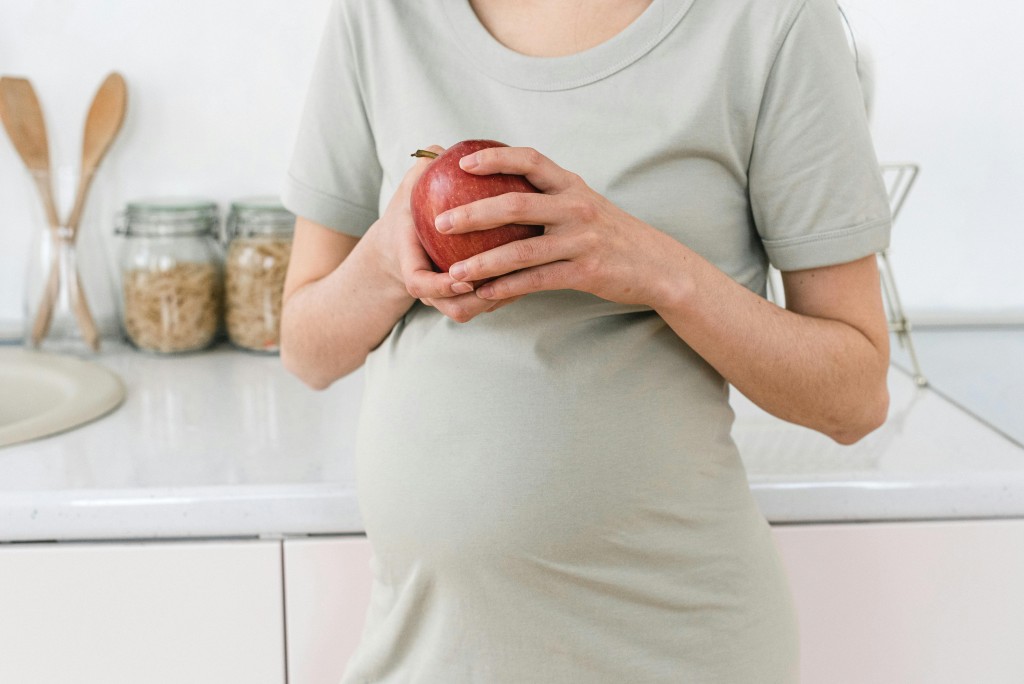
Nourishing Your Body Postpartum: Essential Nutrition Tips for New Mothers
Congratulations, new mama! As you embark on this incredible journey of motherhood, it's crucial to prioritise nourishing your body postpartum and your own health and wellbeing, especially when it comes to nutrition. The postnatal period, often called the fourth trimester, is a time of immense change for your body as it recovers from childbirth and adjusts to the demands of caring for a newborn. Proper nutrition during this time is essential for healing, energy levels, milk production (if you're breastfeeding), and overall vitality. Here are some valuable tips to help you nourish your body during the postpartum period:
1. Prioritise Nutrient-Dense Foods
Your body needs an abundance of nutrients to recover from childbirth and support your energy levels. Focus on incorporating nutrient-dense foods such as fruits, vegetables, lean proteins, whole grains, and healthy fats into your diet. These foods provide essential vitamins, minerals, and antioxidants necessary for healing and overall health.
2. Hydrate, Hydrate, Hydrate
Staying hydrated is crucial for your overall wellbeing, especially if you're breastfeeding. Aim to drink plenty of water throughout the day to support milk production, prevent dehydration, and aid in the elimination of toxins from your body. Herbal teas, infused water and soups are excellent options to add variety to your hydration routine.
3. Include Protein with Every Meal
Protein is essential for tissue repair and muscle recovery, making it a crucial nutrient for postnatal healing. Incorporate lean sources of protein such as chicken, fish, eggs, legumes, tofu, and nuts into your meals and snacks to support your body's recovery process.
4. Don't Skip Meals
With the demands of caring for a newborn, it's easy to forget about your own needs, including eating regular meals. However, skipping meals can lead to low energy levels, irritability, and difficulty with milk production (if you're breastfeeding). Aim to eat small, nutrient-rich meals and snacks throughout the day to keep your energy levels stable and your body properly fuelled. Fill a couple of mason jars with a trail mix-style array of snackables including nuts, seeds, dried fruit pieces and some squares or drops of dark chocolate. Leave these at your typical resting/baby feeding stations.
5. Include Omega-3 Fatty Acids
Omega-3 fatty acids are known for their anti-inflammatory properties, which can be beneficial for postpartum recovery. Include sources of omega-3s such as salmon, walnuts, flaxseeds, and chia seeds in your diet to support overall health and wellbeing. You can add chia seeds into loads of things like yoghurt pots, into smoothies or make into little jammy fruit pots. I warm up frozen berries with a splash of water, let that cool then add the chia seeds-it will turn into a wee jam pot of deliciousness. Or you could make a more breakfasty type affair using organic milk/plant milk, chia seeds, some vanilla essence, serve with fresh fruits and a touch of maple syrup to sweeten. You can keep these little treasures in the fridge. Or overnight chocolatey cinnamony oaty chia heavenly breakfast!
6. Prioritise Iron-Rich Foods
Blood loss during childbirth may lead to iron deficiency, making it essential to prioritise iron-rich foods in your postnatal diet. Incorporate foods such as lean red meat, poultry, fish, beans, lentils, spinach, and fortified cereals to support your body's iron needs and prevent fatigue. If you are still low there are gentle iron supplements that are safe to take during pregnancy and breastfeeding, which won’t upset your bowel function. Please seek professional advice on this.
7. Listen to Your Body
Every new mother's postpartum journey is unique, so it's essential to listen to your body's cues and adjust your diet accordingly. Pay attention to hunger and fullness cues, and honour your cravings in moderation. Remember that nourishing your body is essential for both your own wellbeing and your ability to care for your new baby.
8. Ask for and accept help
Let friends and family bring you home-cooked meals. If they ask what they can do to help, please don’t be shy. In some cultures mama and baby have the first few weeks snuggled up in bed, cuddling, feeding, sleeping, bonding. Friends and family agree a meal train, and deliver freshly cooked foods, which can be left at the front door for collection so as not to disturb anyone. Or a box of baked nutrient-dense cookie-style bites, ideal for the feeding station too. The aim of the game is to nourish, replenish and recuperate as well as possible.
In conclusion, prioritising nutrition during the postnatal period is vital for supporting your body's recovery, energy levels, and overall health as you navigate the joys and challenges of motherhood. By focusing on nutrient-dense foods, staying hydrated, including protein with every meal, and listening to your body's needs, you can nourish yourself from the inside out and lay the foundation for a healthy postpartum journey.
Remember, taking care of yourself is not selfish—it's essential for being the best mother you can be.

Sally Munro is a Registered Naturopathic Nutritional Therapist, Yoga Teacher and Director of Simply Swim Aberdeen swim school. Working with clients of all ages and stages of life, Sally focuses on the simple steps you can take towards improving your health and wellbeing.
website: www.sallymunro.co.uk
email: hello@sallymunro.co.uk
Instagram: @salthewellnesswarrior
Facebook: Simply Swim Aberdeen